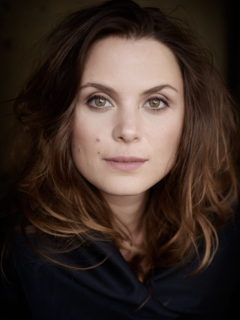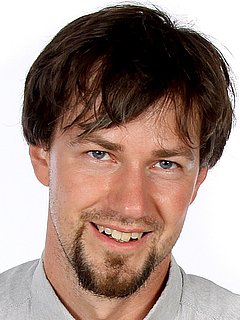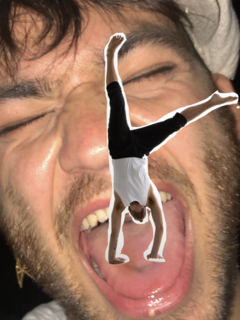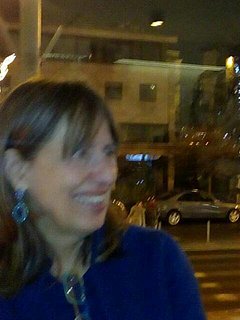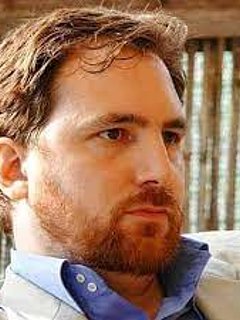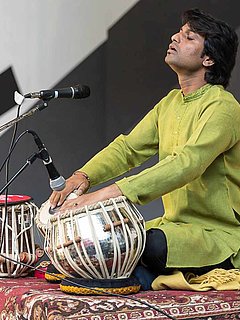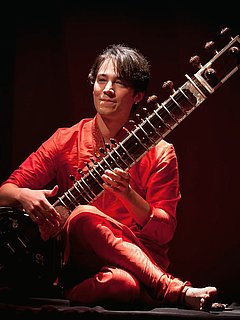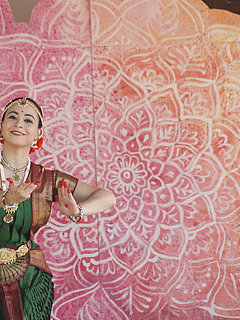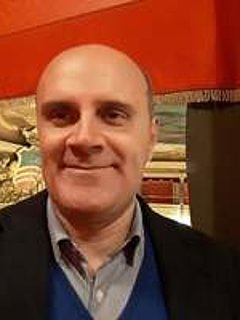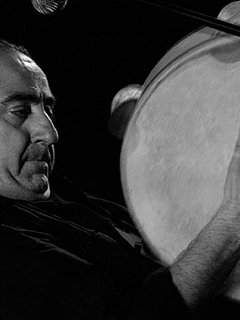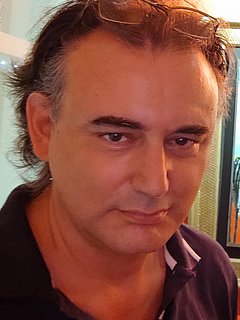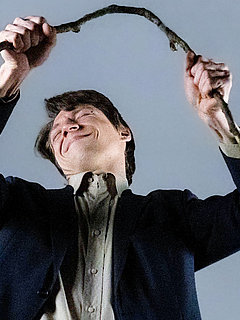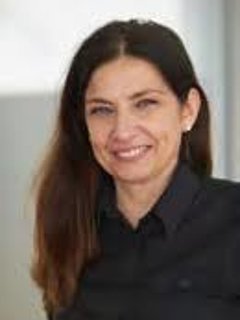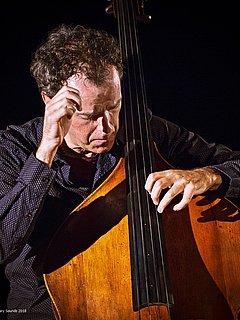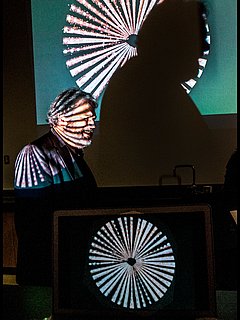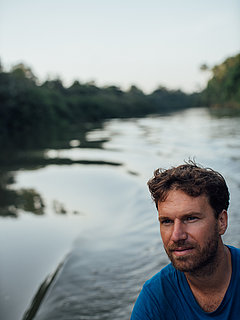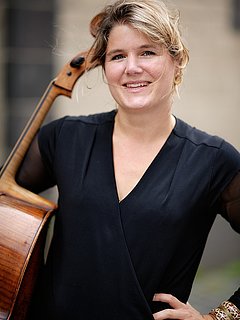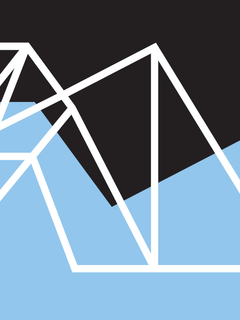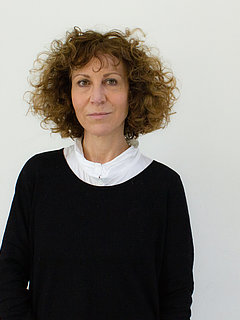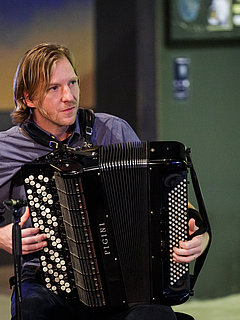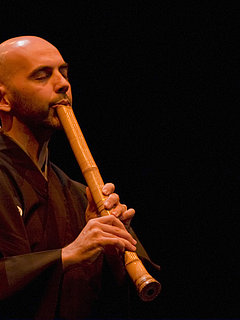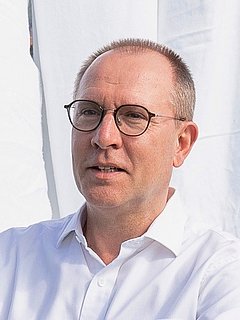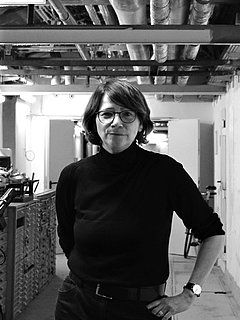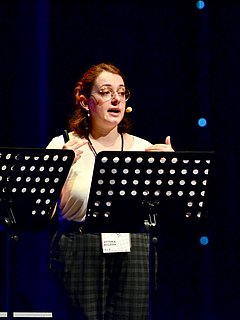Stella Louise Göke studied classical singing in the Netherlands and graduated with a Bachelor of Music in 2014. Since graduating, she has lived in her adopted city of Cologne and works as a freelance singer and actress in a wide range of projects across Europe. She has been studying music education in the Master of Arts programme at the University of Music and Dance in Cologne since 2019. Artistic research allows the young soprano to combine two passions of her artistic work: performing on stage as a singer, experiencing music, and scientifically penetrating these processes and discovering new, previously unimagined things.
The week in Oslo was so special for me because although everything went on Zoom (what can be very exhausting) we had a lot of time. There was space to breath, to let impressions sink and to give room to own thoughts. There were lectures from people and very interesting projects to talk about. But there were also experiments with funny things to do. Although I was in my room I started to sing and to explore my instrument in different ways. How do you reflect? Of course you can think about stuff but what else can you do? What material can you use? How can you tell somebody that you reflect without using your voice? And especially for me as a singer it was very interesting to start reflecting without my voice. Because I am used to use my voice all the time. They talked about and taught me to be open to use different materials. So I started to use a tomato. I reflected on the fact when I walk around I sometimes do not feel secure and I feel vulnerable. Especially on stage. And so I choose a tomato: It seems to be very strong, but it is soft and when you smash it, it exploses in every direction. And I kind of reflected on my thoughts of precarity by smashing tomatoes.
Jaak Sikk(PhD) is a researcher, improviser and a pianist. He teaches contemporary improvisation at the Estonian Academy of Music and Theater and music College of Tartu named after Heino Eller. His doctoral thesis (PhD obtained in 2020) “The Influence of Stimulus Induced Imagery on the Quality of Improvising Freely” researched the possibilities of using imagery in the process of improvising. The research on the topic continues in the field of 'using imagery in group improvisation and interaction' in collaboration with Allan Vurma (PhD) and Marju Raju (PhD). In his teaching methodology, performances and research Jaak combines philosophical concepts, neuroscience and human psychology with practical actions and artistic experimentation aiming to create a context-sensitive transdisciplinary relation involving 'self” and the surrounding environments. Jaak is an active performer in Estonia and abroad as an improviser. From December 2021 on Jaak is a member of Estonian Youth Academy of Sciences. He is the manager of the collaboration project “MuseIA” between Estonian Academy of Music and Theater and Tallinn University of Technology which goal is to create an improvising AI. He has tought master classes in improvisation in the UK.
Caeso: composer, guitarist, computer musician, sound-multimedia-and-etc-artist, has a diverse creative output, exploring mediums such as acousmatic, live electronics, free improvisation and also traditional written composition, besides building sound sculptures, visual and multimedia artworks, and other gadgets. Apart from researching and teaching, he collaborates with several other artists, composing, producing and developing technical projects for soundtracks, soundscapes and interactive installations for theater, short movies and exhibitions. His current research interests are creative uses of DIY technology and the poetics of negativity.
Milena Cappabianca took her degree in Medicine and Surgery, Parma University in 1983 and then the specialization in Neuropsychiatry for Children and Adolescents at the University of Rome “La Sapienza”. Member of Italian Psychoanalytical Society (S.P.I) and the International Psychoanalytical Association (I.P.A), in 1992, having won a public competition, she began working at the Department of Psychiatric Diagnoses and Mental Health treatment, Rome. She taught Clinical Psychiatry for nurses. She has been clinical tutor for junior doctors in Psychiatry at Frascati Hospital (Rome). She participated in numerous national and international congresses. She is also a playwright. Her work, Pappagallo Blues has been mentioned: ‘For the delicacy with which he tells the nuances of relationships and feelings, using music as a counterpoint woven into the very structure of the story’ at the Firenze Film Corti Festival 2020.
Adriano Ercolani is among the main authors who collaborated with Giovanni Casoli in the literature anthology "Novecento Letterario Italiano e Europeo”. He is the vice president of the nonprofit association InnerPeace. He has been dealing with the relationship between Western and Eastern culture for over twenty years. As a critic and journalist, he contributes with articles for the following websites: Repubblica, Repubblica-XL, Fumettologica, Minima&moralia, ilfattoquotidiano.it, Nazione Indiana, Limina, Linkiesta, Globalist, Ultima Voce, Grande come una città. He collaborates with the philosophical project Tlon.
Manish Madankar is an experienced tabla player who has performed throughout India, in Europe, China, Singapore and Russia. He is a versatile percussionist as a solo performer, as an accompanist for instrumental music, vocals, kathak dance, fusion music and orchestral music, boasting several contributions in the Bollywood film industry and in Indian TV programs such as D.D. National Channel and Indian Classical Music Channel (InSync Channel). Dedicated to the study of the instrument from a very young age, he learned from the main exponents of the tabla including Pandit Sandesh Popatkar of Nagpur and the famous Pandit Yogesh Samsi of Mumbai. In 2007 he obtained a Master’s degree in tabla at the Music Department of the Indira Kala Sangit University of Khairagarah and in 2010 a post-master’s degree in instrument at the same university. Following the recognition by the Indian government as an “Approved Artist” among the artists of All India Radio (2016), from 2017 he became an examining member for Masters in tabla and music at the aforementioned university, and external professor of music theory and tabla at the music department of the University of Mumbai. He Created Indian classical music Band name Samanvay Project. Currently stabilized in Italy, Rome, he has already held several masterclasses in Hindustani tabla and rhythms at the Nirmal Arts Academy in Cabella Ligure (Alessandria). Lately he collaborated with the highly esteemed Sarod Maestro Ken Zuckerman in Switzerland. Since October 2020 he has held the position of tabla teacher in the Department of Traditional Music at the ‘Arrigo Pedrollo’ Conservatory of Music in Vicenza.
Leo Vertunni (London, 1989) Concert sitarist with vast international experience, specialized in classical music hindustani, with numerous collaborations to his credit of cultural mingling such as flamenco, jazz, classical western, electronic. Leo grew up taking part in his family theatre and musical productions. Later he undertook academic studies in Indology and Indian music, gaining and honour BA degree at the Alma Mater University of Bologna and a Master’s degree in Indian Music Performance at the SOAS University of London. He studied the technique of sitar and the practice of Indian classical improvisation from renowned master such as Pt. Avaneendra Sheolikar, Ust. Dharambir Singh and presently from Ust. Mehboob Nadeem. As a performer Leo has been working in several projects (Indialucia, Seven Eyes, Divine Symphony Orchestra, Ragamala project) and as a session musician for many more, touring extensively in Europe, North America, and also having performed in South America, Asia, and Africa. Concert sitarist with vast international experience, specialized in classical music hindustani, with numerous collaborations to his credit of cultural mingling (flamenco, jazz,
classical western, electronic). His discography can include publications with specialized labels such as Dark Companion (Confluence, Jugalbandi Trio), how muchwith majors such as Universal (Oltre, Mace). In addition to performing training, received from Usta Irshad Khan, alongside creative activity, Leo combines popularisation by curating broadcastsradio (RSI, RAI), holding workshops and seminars (MUDEC), and didactic: since 2019 he has been a professor at the traditional music department of the Conservatory of Vicenza.
Valeria Vespaziani was born in Rome. She began her training in classical and modern dance. She has performed in Italy, Romania, Spain, England and Greece. Since 2004 she began her learning journey of Indian dance starting from the Bharatanatya genre, m, under the guidance of Annalisa MIgliorino. She perfected with the teacher Usha Raghavan. During her training trips to India she studied with internationally renowned masters such as come Renjith Babu, Vina Vasudevan, Indira Kadambi, Leela Samson. She Today she continues to deepen her studies with Lucrezia Maniscotti in Milan. In 2007 she graduated with honors from the University of RomaTre and in 2019 she brilliantly graduated in classical dance, in the kathak genre, at the Conservatory of Vicenza ‘A. Pedrollo’, in the Department of Music and Extra-European Traditions, with Prof. Rosella Fanelli, receiving the Rotary Academic Year Award as the best student of the conservatory of the Vicenza Conservatory. Recently, he has collaborated in artistic performances in conferences at the Oriental Studies department of Rome La Sapienza University and at the Vicenza Conservatory. Since 2014 she has been teaching masterclasses at the Nirmal Arts Academy (Cabella Ligure, Alessandria).
Raffaele Di Mauro (Caserta, 1976) obtained in 2013 the PhD in History, Science and Techniques of Music at the University of Rome "Tor Vergata", where he was subsequently also a contract professor of Ethnomusicology. He has a collaboration contract for the chair of Musicology and History of Music at the University of Naples "Suor Orsola Benincasa". He is currently professor of History of Music in Music and Dance High Schools. He is the scientific director of the “Campania Sound Archive of Oral Tradition Music” in Naples and a founding member of the “Alan Lomax Study Center” based in Palermo. He has given various speeches at national and international scientific conferences, and has published essays in Italian and English, in particular on the Neapolitan song of the early nineteenth century and on the traditional music of the Campania area.
Dando Citarella is a musician and ethnomusicologist. He studied and collaborated with important artists such as Eduardo De Filippo, Dario Fo, Linsday Kemp, Roberto De Simone and Ugo Gregoretti. He participated, as opera and baroque singer, in some films directed by Mario Monicelli, Luigi Magni, Cristina Comencini and Franco Zeffirelli. In 2003 he was appointed honorary member of the Register of Italian and European Writers and Artists for the Italian National Commission for UNESCO for the work carried out in the field of research on Traditional Music and Popular Theater of Southern Italy Protagonist of Opere buffe , musical comedies and concerts in Italy and abroad and, in particular in 1996, at the Edinburgh Festival as the only Italian opera singer and as choreographer and author of a show of contemporary ethnic dances. Since 1990 he has been a professor at the I.s.f.o.m. (training institute for music therapist operators) in Naples directed by Dr. G. Di Franco where he teaches Folklore Music and Movement in the popular rituals of central-southern Italy and in the Mediterranean. Since 98 he has been collaborating with the U.Giordano Conservatory of Music in Foggia on behalf of ISMEZ and CONFIAM, as a teacher of Therapy and Folklore. In 2007 he creates the Mozart Project south of Naples thus bringing the Opera to the courtyards of small provincial towns as well as to festivals such as Berlioz of La Còte S’Andre, Lyon, Vienna, Graz, Salzburg, Linz and the tour in 2010 at the Teatro San Carlo in Naples on the occasion of the foundation of the Historical Archive of Neapolitan Song and later at the Ravello Festival. Professor of Traditional Music at the L'Aquila Conservatory of Music.
Duilio D'Alfonso holds a degree in philosophy from Rome University “La Sapienza” and a PhD in Philosophy of Language and Mind from University of Palermo. He graduated in Piano and in Composition from the Music Conservatory of L’Aquila. As a composer, a number of compositions have been performed in Italy and abroad, and were transmitted in various radio programs. He taught Harmony and Counterpoint in several Italian Conservatories. In 2020 he was appointed professor at the State Conservatory of music ‘Santa Cecilia’ in Rome. Since then, he has been
teaching Harmony and Analysis, Acoustics, Music Psychology, and Philosophy of Music. As a music theorist, he works on Music Cognition, Schenkerian analysis, neo-Riemannian theory. He is also involved in theory of Musical Form (Formenlehre) and in 20th century avant-garde music.
Marko Miladinovic (Vukovar, 1988) Poet and cultural promoter. He lives in Italian-speaking Switzerland. ProHelvetia Literary Scholarship 2019, ErbProzent Kultur 2020, resident artist at Landis & Gyr Stiftung Zug 2022. he Participates in national and international festivals. He has been invited to read his poems in several European cities and Tunis. Since 2014 he has curated and organized the Ticino Poetry Slam. He is active in the world of video poetry and sound poetry. Since 2016 he has been published in a dozen anthologies across Europe. Essays on his poetics have been written and texts by him have been published in German, Russian and Greek. His work first book is L’umanità gentile (Miraggi Ed., Turin 2017). His works are in the following publications: 2018 Mini antologia della poesia italiana contemporanea, Nizhny Novgorod, Vasarifest.ru; 2016 Guida liquida al poetry slam, Agenzia X Ed.; 2019 Unsere Schweiz, Zytglogge Verlag; 2021 Foglio rapsodico di scritture 3, BazarBookpress; 2021 Wortknall Spoken Word in der Schweiz, Der gesunde Menschenversand. In 2023 his new book of poetry will be released in Italy with the contribution of ProHelvetia, the Swiss foundation for the culture.
Fiorella Battaglia is the Director of the Laboratory for Ethics in the Wild in the Digital Humanities Centre at the University of Salento, where she is also appointed as Assistant Professor in the Department of Philosophy. Themes of her research are the hard ethical questions posed by emerging technologies which are shaping our social and epistemic practices and our moral experiences. She got her philosophy degree at the University of Pisa and received her doctoral degree in philosophy and politics from the University of Naples “L'Orientale” (2004) under the supervision of Rossella Bonito Oliva. 2016 she completed her habilitation in practical philosophy
and received her venia legendi from the Ludwig-Maximilians-Universität of Munich (Germany). She was also acting professor of epistemology at the Medical School of the University of Pisa and visiting professor at the Dirpolis and Biorobotics Institutes of the Sant’Anna School of Advanced
Studies in Pisa.
Daniele Roccato Professor of Double bass at the Conservatory of “Santa Cecilia” in Rome, is a double bass soloist and composer. As a soloist he has performed at many of the world’s most renowned festivals and concert halls, often presenting his own compositions. Gavin Bryars, Julio Estrada, Fabio Cifariello Ciardi, Ivan Fedele, Sofia Gubaidulina, Hans Werner Henze, Filippo Perocco, Terry Riley, Nicola Sani, Salvatore Sciarrino, Stefano Scodanibbio, wrote for and worked with him. Together with Scodanibbio he created Ludus Gravis, the most recognized ensemble of double basses in the field of contemporary and new music. For dancer and coreographer Virgilio Sieni he wrote the music of Agorà Tutti, Vangelo secondo Matteo (produced by La Biennale di Venezia), CORPUS_Deposizioni e Visitazioni, Vita_Nova, DOLCE VITA_Archeologia della Passione, (produced by RomaEuropa Festival), Le Sacre - Preludio (produced by Teatro Comunale di Bologna), Cantico dei Cantici, Preludi/Cominciamenti. Within theatre he wrote the music for NuvoleCasa and Monsieur Teste produced by Socìetas Raffaello Sanzio (Chiara Guidi) and for and for LUS, produced by Teatro delle Albe (Ermanna Montanari, co-produced by ERT - Emilia Romagna Teatro) for which he received the nomination to the UBU Prize 2015 as a composer. He also wrote the music for Madre (produced by Teatro delle Albe, Ravenna Teatro). He wrote the music for the films The Sky over Kibera and ER by Marco Martinelli. Together with the composer Tonino Battista he realized the opera Assedio, coproduced by RAI News24. He worked with the war correspondents Lucia Goracci and Francesca Mannocchi. In the field of extemporary creation and improvisation he performed with many reference artists. Among the duo and trio projects are to be mentioned the ones with Olivier Benoit, Bruno Chevillon, Marco Colonna, Pascal Contet, Mark Dresser, Paolo Damiani, Marc Ducret, Garth Knox, Ciro Longobardi, Ivo Nilsson, Fabrizio Ottaviucci, Barre Phillips, Dominique Pifarély, Michele Rabbia, Terry Riley, Markus Stockhausen, Jay Schwartz, Michael Thieke.
He often improvises also with dancers, actors, writers, philosophers, poets, painters, graphic novelists. To be mentioned the project with painter, sculptor and poet Jim Dine, one of the founders of Pop Art movement.
Some of his many transcriptions are forthcoming for Sikorski, Schott and Salabert editions. He brought the double bass as a solo instrument into pop music with trio projects together with Lucio Dalla and Roberto Vecchioni. He was invited to hold seminars at Conservatoire National Supérieur (Paris), Universitat der Kunste (Berlin), San Francisco State University, Norwegian Academy of Music (Oslo), Ca’ Foscari University (Venice), Royal Danish Academy of Music (Copenhagen), UNAMM (Mexico
City), UNEAC (Havana). He recorded for ECM, Wergo, Sony. Several of his concerts were broadcast by Rai RadioTre, BBC Radio and Sky ARTE.
Composer, bass player, improviser and teacher.
The attitude towards experimentation and artistic research, lead him to probe different unconventional music, since the early years.
Free improvisation, interplay, electronic/acoustic blends, polyrhythmic explorations, cross-disciplinary relationships between music, nature and mathematics are common features of his music (both in personal projects and as a session man).
Born in Alessandria (Italy) the 16th of August 1992 and raised in family of musicians, Leonardo approaches violin as child, and bass guitar later. During his academic formation, he has chance to study with great Italian artists, like Riccardo Fioravanti, Enrico Fazio, Paolino Dalla Porta, Umberto Petrin, Achille Succi, Roberto Cecchetto, Luigi Martinale, Giovanni Ceccarelli, Massimo Morganti, Pino Russo; he also attends masterclasses held by Linda Oh, Ben Wendel, Dominique Di Piazza, Fabian Almazan e Julien Debois. Leonardo gains his bachelor degree in 2016, presenting his thesis Kaleidophone e Thesaurus: la presenza di Schillinger e Slonimsky nella musica Jazz. Driven by a strong curiosity about natural world, he graduated in Biology in 2018 and, finally in 2020 he gets the Master Degree as well with his work Cross-Rhythms: elementi ritmici ciclici nel jazz contemporaneo. All these researches form the basis on which his
artistic exploration sprouts, leading to join, in 2022, the Master Program AreMus in Conservatory Santa Cecilia (Rome).
Sandeep Bhagwati is a multiple award-winning composer, theatre director and media artist [Studies: Musikhochschule Salzburg & Munich, IRCAM Paris]. His compositions and comprovisations (including 6 operas/music theatre works) are performed worldwide. He has curated several festivals and long-term inter-traditional projects with Asian musicians. A Canada Research Chair for Inter-X Art at Concordia University since 2006, he directs matralab, a research/creation node for live arts. Since 2013, he is artistic director of the trans-traditional ensembles Extrakte Berlin and Sangeet Prayog Pune, leads TENOR, an international network for notation technologies and is co-editor of TURBA - Journal for Global Practices in Live Curation. More
Félix Blume (France, 1984) is a sound artist and sound engineer. He currently works and lives between Mexico, Brazil and France.
He uses sound as a basic material in sound pieces, videos, actions and installations. His work is focused on listening, it invites us to a different perception of our surroundings. His process is often collaborative, working with communities, using public space as the context within which he explores and presents his works. He is interested in myths and their contemporary interpretation, in human dialogues both with inhabited natural and urban contexts, in what voices can tell beyond words.
His sound pieces have been broadcasted in radios from all over the world. He has been awarded with the “soundscape” prize for his video-piece Curupira, creature of the wood and the “Pierre Schaeffer” prize for his work Los Gritos de México at the Phonurgia Nova Awards
Jan Burkhardt loves to shine a light on the continuous interconnectedness of body, space and time, and uses the body’s sensations as one of the fundaments for creative processes in general, and more specifically in the context of contemporary dance, often interwoven with interdisciplinary features. At HfMT, he teaches contemporary dance practice in diverse somatic and artistic settings, while he continues to be involved in artistic productions in the free scene throughout Europe.
Evelyn Buyken is a research associate at the Institute for Historical Musicology at the HfMT Cologne and is also the content director and initiator of the inter-university Forum for Artistic Research. The musicologist conducts research at the interfaces between musicology and musical practice. One focus of her research is the musical culture of the 18th and 19th centuries. Her dissertation on the early reception of Bach in the Jewish salons of Berlin appeared in the "Beiheften zum Archiv für Musikwissenschaft" published by Franz Steiner-Verlag (July 2018) and was evaluated by an interdisciplinary team of reviewers in 2016. She is currently researching the body as a repository of musical knowledge. In doing so, she deals with historical material as well as empirical investigations that are oriented towards practice-based research methods from the field of artistic research. As a qualified cellist, she has specialised in the field of historically informed performance practice. She conducts the Cologne Baroque Orchestra, which she founded, and performs on national and international stages. CD recordings and radio recordings document her artistic work.
Together with her team she designs Lab 3 in Cologne.
When I first arrived in Tallinn I had no clue on what Autoethnography was or meant. When I came back, I had an idea of what it was and, most important, of how it could be used within artistic research, enough to use it to carry on my own project. Each day we learnt about an aspect of autoethnography and were given inputs on how to incorporate it in a meaningful way for our own artistic subjectivity, and the activities were both interesting and useful in this sense. The whole experience was empowered by the cooperation among the participants which was constantly encouraged. I personally met both new people and people I knew since the previous RAPP Labs, through the activities I learnt both personal and artistic traits of some of them - and so did they with me - and I felt very grateful and enriched by this exchange.
Carla Conti is professor of Choir Conducting and Choral Repertoire at the Conservatory of Music ‘Santa Cecilia’ in Rome. She took her degree in Musicology (Alma Mater University in Bologna) and her Masters in Piano, in Choral Music and Choir Conducting, and in Music Education. Her fields of research: Gender issues; Neapolitan song; Leadership in music communities. Among her publications: a monograph Nobilissime allieve – della musica a Napoli tra Sette e Ottocento (Guida, 2003); De l’ hortus clausus à la chambre de musique: l’enseignement de la musique à Naples dans la première moitié du xixe siècle (Symétrie Lyon, 2016); Zeneide Lebzeltern. Musica e diplomazia al femminile nella Napoli dell’Ottocento (SEDM, 2021). She presented her research works at numerous international conferences/symposia (Helsinki, Bern, Vienna, St. Petersburg, Bruxelles). Among her participations in congress/conferences: 2012 Helsinki, “Kaija Saariaho’s ‘Quatre Instants’ Analysis”; 2017 Berna University) “Ma tu vulive ‘a pizza”. Neapolitan song and cultural tourism; 2017 Vienna, IKM / MDW “A dramatic song: consonances and dissonances of gender issues in the Reform of Music Education in Italy”; Cultural Forum, Saint Petersburg 2019 “Diplomacy and women's contribution to the preservation of musical heritage”; 2020 EhBInternational Days “Au choir come à la guerre. Impact of Gender and power dynamics in the choral conducting practice” (online Bruxelles); 2022 "Gender issues and digitalization in musical careers” at the Conference Ethics and Digitalization IV (online Berlin).
She created Lab 6 in Rome.
Darla Crispin is a pianist, scholar, lecturer and academic leader who has worked in all these fields in a variety of countries including Canada, the UK, The Netherlands, Belgium and Norway. She is currently Director of the Arne Nordheim Centre for Artistic Research (NordART) at the Norwegian Academy of Music (NMH), Oslo. Born in British Columbia, Canada, Darla took her BMus at the University of Victoria before moving to the UK for her advanced studies. She gained a Concert Recital Diploma from the Guildhall School of Music & Drama, London and an MMus and PhD in Historical Musicology from King’s College, London. After a period working professionally with a variety of contemporary music ensembles in The Netherlands, she turned her emphasis to teaching and scholarship. She was responsible for developing postgraduate programmes at the Guildhall School and, later, at the Royal College of Music, where she established, and was the first Head of, the RCM Graduate School, being granted the title of HonRCM in 2009.
Together with her team she designed the Lab 1 in Oslo.
Horacio Curti studied the shakuhachi in Japan where he got his shakuhachi shihan, master’s degree. He later completed a PhD thesis with the title ‘Aesthetics of sound in Japanese hōgaku. Ethnomusicology and Artistic Research in dialogue.' He works on artistic research with a focus on the transdisciplinary and the audio-visual as a tool to create and communicate knowledge. He has performed and taught in North and South America, Europe and Japan and currently is associate professor at Catalonia College of Music (Escola Superior de Música de Catalunya) in Barcelona. His activities had included performing as soloist with the Spanish National Orchestra, the edition of the book “Eolssigu”, the publication of two solo albums, the curation of the yearlong exhibition on South Korean musical practices and the production (with Ariadna Pujol) of over a dozen audio-visual pieces including ‘Eolssigu’ which got best short film prize at Kathmandu 8th International Folk Music Festival.
Website: http://www.shakuhachi.es/en/homepage.html
Summary reel of his artistic projects: https://youtu.be/5cGqx81CQHU
María do Mar Castro Varela is Professor of General Education and Social Work at the Alice Salomon University of Applied Sciences Berlin. She holds a degree in psychology, a degree in education, and a doctorate in political science. Among other positions, she was a Senior Fellow at the Institute for the Science of Man (IWM) in 2015/16 and held the Sir Peter Ustinov Visiting Professorship at the Institute of Contemporary History at the University of Vienna in winter 2021/22.
Her research interests include queer studies, postcolonial theory, critical migration and education studies, trauma, and conspiracy narratives. María do Mar is also a member of the research group "Radiating Globality" led by Gayatri C. Spivak, founder and member of bildungsLab* (bildungsla.net), Chair of the Berlin Institute for Counterpoint Social Analysis (BIKA) and Principal Investigator of the research project DigitalerHass (IFAF).
Vittoria Ecclesia is a clarinettist and PhD student at the Estonian Academy of Music and Theater. The main focus of her work are the affordances of period and modern clarinets. She is also interested in the meta aspect of artistic research and the constructions of methodologies. Vittoria presented her work in various international conferences and is an active orchestra and chamber music player.
